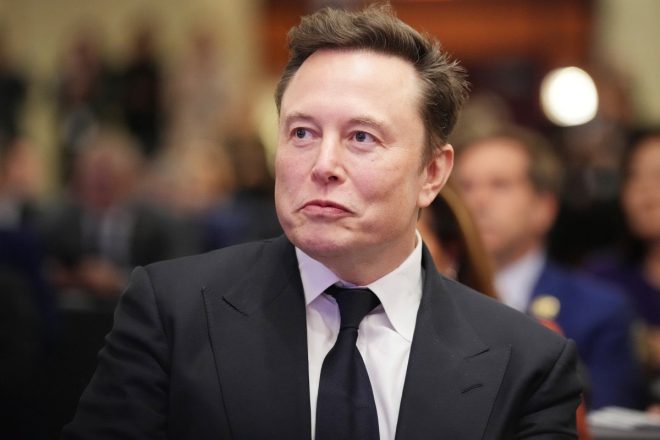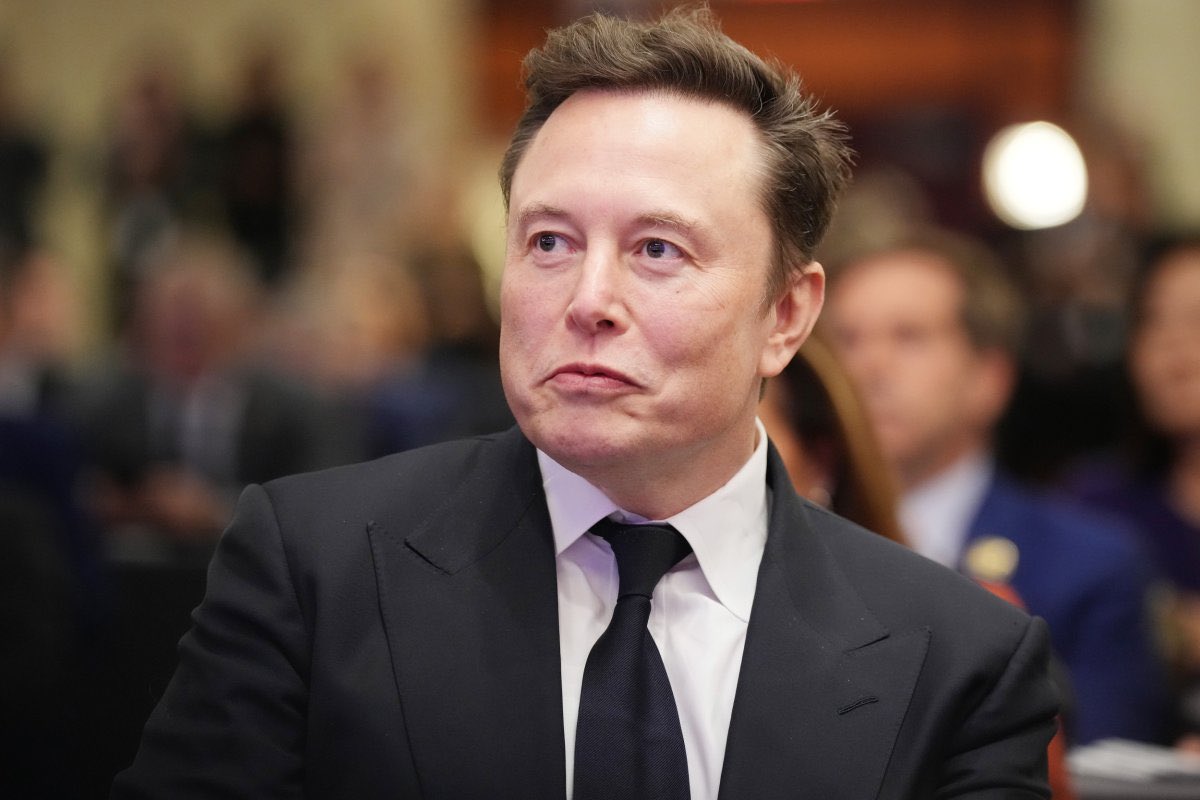
Elon Musk’s Controversial Claim on US Politicians and Ukraine Funding
In a recent tweet that has sparked significant debate, Elon Musk, the CEO of SpaceX and Tesla, made a bold assertion regarding U.S. politicians and the financial aid sent to Ukraine. He claimed that some U.S. politicians are receiving "kickbacks" from taxpayer funds allocated to support Ukraine amidst its ongoing conflict with Russia. This statement has raised eyebrows and prompted discussions about the implications of foreign aid, political accountability, and transparency in government spending.
Understanding the Context
The context of Musk’s tweet is essential to grasp the complexities surrounding U.S. financial assistance to Ukraine. Since the onset of the conflict with Russia in 2022, the U.S. has provided substantial military and humanitarian aid to Ukraine. This support has been framed as a necessary action to help a sovereign nation defend itself against aggression. However, the sheer volume of taxpayer dollars flowing overseas has led to increased scrutiny and skepticism regarding where these funds are going and who ultimately benefits.
The Kickback Allegation
Musk’s claim about politicians receiving kickbacks introduces a serious allegation into the discussion. Kickbacks typically refer to illicit payments made to individuals in return for facilitating a transaction or contract. In the context of government funding, this implies that certain politicians may be profiting from the aid provided to Ukraine at the expense of American taxpayers. Such assertions, if proven true, could undermine public trust in government institutions and raise calls for accountability and reform in the way foreign aid is managed.
Public Reaction
The tweet has ignited a firestorm of reactions across social media and news platforms. Supporters of Musk argue that he is merely shining a light on a potentially corrupt system and that transparency is desperately needed in government spending. Critics, however, contend that Musk’s allegations are unfounded and can detract from the legitimate humanitarian and strategic reasons for supporting Ukraine. The polarized responses highlight the broader division in American politics regarding foreign aid and intervention.
- YOU MAY ALSO LIKE TO WATCH THIS TRENDING STORY ON YOUTUBE. Waverly Hills Hospital's Horror Story: The Most Haunted Room 502
The Broader Implications
Musk’s statement raises several critical questions about the role of politicians in foreign aid decisions. Are there mechanisms in place to ensure that funds are being used effectively and ethically? How can the public hold its representatives accountable for their financial decisions? Furthermore, the conversation touches on the integrity of the political system and the potential influence of money in politics.
The Importance of Transparency
In light of Musk’s claims, the demand for increased transparency in governmental spending becomes even more pressing. Citizens have a right to know how their tax dollars are being utilized, especially when it involves significant sums directed towards foreign nations. Advocating for clearer reporting and oversight of foreign aid can help alleviate concerns over corruption and bolster public trust in elected officials.
A Call for Accountability
The notion of accountability extends beyond just the allegations made by Musk. It calls into question the broader mechanisms of checks and balances that exist within the U.S. political system. As taxpayers, citizens deserve assurance that their funds are being allocated in a manner that aligns with national interests and ethical standards.
The Role of Public Discourse
Musk’s tweet has opened a public discourse on the ethics of foreign aid and the responsibilities of elected officials. Engaging in discussions about these topics is crucial for fostering a more informed electorate that can advocate for policy changes. Encouraging citizens to voice their opinions and hold their representatives accountable can lead to more responsible governance.
Conclusion
Elon Musk’s recent remarks regarding U.S. politicians and alleged kickbacks related to Ukraine funding have brought to light significant issues surrounding transparency, accountability, and the ethical management of taxpayer dollars. As the conversation continues to unfold, it is imperative for citizens to remain engaged and informed about the implications of foreign aid. Whether one agrees or disagrees with Musk’s assertion, the underlying need for transparent governance and responsible political action remains a critical issue for American democracy.
In the end, fostering a culture of accountability and openness is essential in ensuring that government actions reflect the will and best interests of its constituents, particularly when it comes to the allocation of taxpayer funds for foreign aid.

JUST IN: Elon Musk says US politicians are receiving “kickbacks” from taxpayer funds sent to Ukraine.
Do you agree? pic.twitter.com/BVykugHI7t
— BRICS News (@BRICSinfo) February 20, 2025
JUST IN: Elon Musk says US politicians are receiving “kickbacks” from taxpayer funds sent to Ukraine
Elon Musk, the CEO of Tesla and SpaceX, has stirred up quite a conversation recently with his bold claim that US politicians are receiving “kickbacks” from taxpayer funds sent to Ukraine. This statement raises many eyebrows, igniting debates across social media platforms. As someone who has always been in the limelight, Musk’s opinions often lead to discussions about the integrity of government spending, especially on international aid. But what does this really mean for the average citizen, and should we take his words seriously?
Understanding the Context of Musk’s Statement
To fully grasp the implications of Musk’s claim, we need to consider the context in which it was made. The US has been providing significant financial and military support to Ukraine, especially following the Russian invasion in 2022. This aid has been a topic of extensive debate, with supporters arguing it’s crucial for democracy and freedom, while critics question the effectiveness and accountability of how these funds are used. When Musk asserts that politicians are receiving kickbacks, he suggests that some may be profiting from these transactions, which raises significant ethical questions.
The idea of “kickbacks” usually implies some form of corruption or illicit financial gain, leading to conversations about transparency in government. The use of taxpayer money should be closely monitored, and any indication of misuse can result in public outrage. This notion is explored in various reports. For example, [The Hill](https://thehill.com) covers concerns about how foreign aid is allocated and whether there are proper checks and balances in place.
Public Reaction: Do You Agree?
After Musk’s declaration, the public’s response has been mixed. Some people share the sentiment, believing there is a lack of accountability in government spending. Others defend the integrity of their elected officials, arguing that the funds sent to Ukraine are essential for global stability. This divide is a classic example of how political opinions can vary widely based on personal beliefs and experiences.
Social media, particularly Twitter, has become a battleground for these discussions. Opinions are shared rapidly, often without thorough research backing them up. It’s important for individuals to take a step back and analyze the facts before forming an opinion. Engaging in meaningful dialogue can lead to a more informed populace, which is crucial in a democracy.
The Role of Transparency in Government Spending
Transparency in government spending is vital for maintaining public trust. When taxpayers see where their dollars are going, they can feel more confident about the decisions being made on their behalf. Organizations like [Transparency International](https://www.transparency.org) work to promote accountability in government and fight against corruption, emphasizing the importance of transparency in aid distribution. Musk’s statement can be seen as a push for more scrutiny on how taxpayer funds are managed, especially in foreign aid scenarios.
In the case of Ukraine, it’s essential for citizens to understand how funds are allocated. Are they going to help rebuild infrastructure? Are they being used effectively to support military efforts? These are questions that need answers, and they are more pressing than ever in light of Musk’s comments.
Historical Context: US Aid to Ukraine
To better understand the current situation, let’s look at the history of US aid to Ukraine. Since the annexation of Crimea in 2014, the US has provided billions in support to help Ukraine defend its sovereignty. Most of this aid is intended for military assistance, economic support, and humanitarian aid. However, as with any large financial commitment, the potential for misuse or misallocation exists, which is where Musk’s allegations come into play.
As citizens, we need to ask: Are the right systems in place to ensure that this aid is used appropriately? Organizations like the [Center for Strategic and International Studies](https://www.csis.org) have analyzed the effectiveness of US aid to Ukraine, exploring both the benefits and the challenges that come with such significant financial support.
Examining the Impact of Corruption Accusations
Accusations of corruption can have far-reaching effects, not just on public perception but also on international relations. If people believe that their government officials are profiting from foreign aid, it could lead to decreased support for such initiatives. This could ultimately harm not only the countries receiving aid but also global stability.
Moreover, if there is a widespread belief that funds are being mismanaged, it might impact future aid agreements. Countries might be less willing to accept support if they suspect it could be tainted by corruption. As we navigate this complex web of international relations, it’s crucial to maintain a focus on integrity and transparency.
The Importance of Accountability
Accountability must be at the forefront of any discussion regarding government spending, especially in contexts like foreign aid. It’s essential that mechanisms are in place to ensure that funds are used effectively and ethically. This includes regular audits, public reporting, and open channels for citizens to voice concerns.
Organizations and watchdog groups play a crucial role in this process. They help keep the government accountable and ensure that taxpayer funds are spent wisely. You can find a wealth of information on this subject from reliable sources like [The Government Accountability Office](https://www.gao.gov), which provides insights into government spending practices and assessments of various programs.
The Broader Implications of Musk’s Statement
Musk’s remarks are not just about Ukraine; they touch on a broader issue of trust in government. When influential figures speak out, they can shape public discourse and influence opinions. This statement could lead to a greater demand for transparency and accountability across the board, not just in relation to foreign aid.
It’s also a reminder that in a democratic society, the public has a right to question government actions. Engaging in constructive criticism is vital for ensuring that elected officials remain accountable to the people they serve. The dialogue surrounding Musk’s statement is an opportunity for citizens to reflect on their beliefs about government spending and to advocate for more transparent practices.
Moving Forward: What Can We Do?
So, what can you do in light of Musk’s statement and the ensuing discussions? First and foremost, stay informed. Follow reliable news sources and engage in conversations about government spending and foreign aid. It’s essential to understand the complexities of these issues and to advocate for transparency and accountability.
Consider participating in local forums or discussions about government spending. These platforms allow you to voice your concerns and engage with others who share your interests. Additionally, you can reach out to your elected officials to express your views on foreign aid and the importance of ethical spending practices.
In the end, whether you agree with Musk or not, it’s crucial to approach this topic with an open mind and a willingness to engage in meaningful dialogue. The more we discuss these issues, the better equipped we are to hold our government accountable and ensure that taxpayer funds are used effectively.
Engaging with these conversations can lead to a more informed and active citizenry, ultimately benefitting society as a whole. So, do you agree with Musk’s perspective? It’s time to weigh the evidence, ask the tough questions, and contribute to the dialogue around government spending and accountability.
